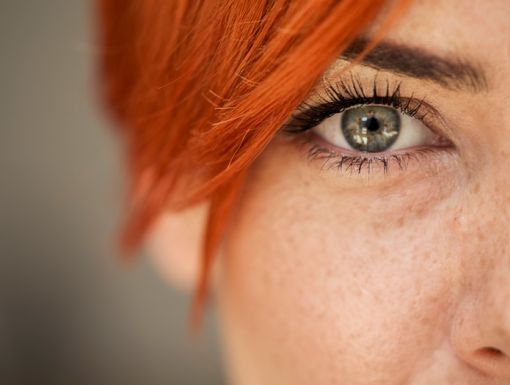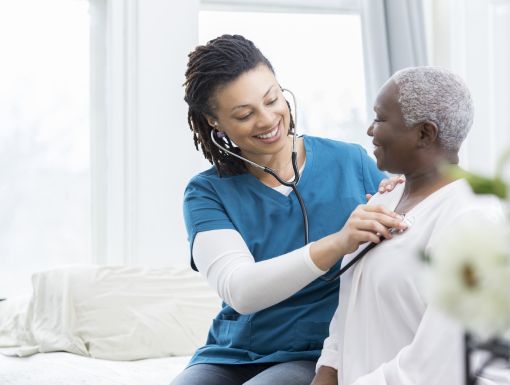
What Checkups Should I Get at 30?
By the time we reach our 30s, our bodies are beginning to shift gears. The first decades of our lives are defined by significant changes in our cognitive and physical growth as well as hormonal changes and the transformation that accompanies puberty. For many, the years before we turn 30 are characterized by good health and plenty of energy. When we reach our 30s, however, the strength we perhaps have taken for granted in our younger years may begin to dwindle just a bit.
Our metabolisms tend to slow down around this time. The seemingly infinite reserves of energy that we once experienced may begin to feel slightly depleted. Inside our bodies, we may start to lose some of our lean tissue, and our hormone levels may also start to dip. If you are a woman, you may begin losing bone mass each decade starting in your 30s, which will slightly raise your risk of osteoporosis over time. And in both women and men, everything from collagen production to human growth hormone will begin to slow down. It’s not all bad news, though! With a bit of caretaking, we can minimize these changes.
By age 30, you are hopefully familiar with your own health and have knowledge of your family’s medical history as well. You may also understand the importance of having a primary care physician and undergoing routine health examinations. If not, now is the time to learn! Developing a relationship with a primary care physician can save you money over time by lessening risks and providing preventative care. This relationship with a doctor will help you get the most out of these traditionally active years.
A primary care physician can help you understand and undergo important screenings and health checks in your 30s and beyond to keep you on track. They are your trusted resource to prevent and avoid severe or complicated healthcare scenarios down the line. If you haven't started already, here are the checkups that I recommend beginning at age 30.
When was your last primary care exam? If it's been over a year, let's get your health back on track.
Blood Pressure
Understanding your average blood pressure will help you and your doctor lessen the risk of heart disease and stroke as well as other complications that can arise from chronic high blood pressure over time. While several things can alter your blood pressure reading in the moment, having a record of your measurements and trends from different appointments will help establish a baseline.
Having high blood pressure can be asymptomatic. It can have various causes including genetics and/or lifestyle behaviors, which is why it is so important to have your vital signs checked and monitored with your regular primary care physician. 1 in 3 Americans have high blood pressure, so it is a fairly common diagnosis. Your blood pressure can be managed with the help of a primary care physician in order to help prevent complications from chronic high blood pressure in the years to come.
Cholesterol Screening
Turning 30 should be a wake-up call to get serious, or at least more thoughtful, about the way you treat your heart. Our cholesterol levels play a significant role in how easy or difficult it is for our hearts to pump blood through our bodies over time. Studies have shown that atherosclerotic blockages, or the buildup of cholesterol plaques in vessel walls, can begin at an early age. These deposits start soft but can harden into plaque over time. So, while many young adults are under the impression that cholesterol is a problem that we can solve later in life, poor dietary habits may already be putting you at risk.
Testing your cholesterol and understanding your baseline serves the purpose of looking for genetically high causes of cholesterol. It also can encourage healthier lifestyle habits moving forward if your doctor observes that your cholesterol levels are elevated. Here's a primer on understanding detailed cholesterol screening results and the difference between "good" and "bad" cholesterol.
Eye Exams
Hopefully, you have been fortunate enough to have gone through your childhood and 20s without eye issues. However, many of your peers are already using glasses or have undergone eye surgery like LASIK to correct their troubled vision. Now is the time to be kind to your eyes. You will want to take special care of these essential sensory organs, from being mindful of screen time and preventing visual stress to wearing sunglasses to guard against harsh UV light.
An annual eye exam with your doctor or an ophthalmologist can help deter vision issues from becoming too serious or out of control. If you need intervention, whether it is glasses, contacts or surgery, a regular visit with a trained specialist will help catch any problems right away.
Skin Checks
Skin cancer is one of the most common forms of cancer in the United States. Experts from the American Academy of Dermatology Association estimating that 1 in 5 Americans will develop skin cancer within their lifetime. Anyone can get skin cancer, and it can form anywhere on your body. Adults 30 and above should undergo regular screenings with a dermatologist to monitor moles and other blemishes for signs of cancer.
In your 30s, I recommend getting familiar with your skin. Instead of simply being aware of surface-level marks, blemishes, moles or lesions, make a mental note of their size, shape and color. If you start to notice any changes, such as growth in size or irregular or asymmetrical border, pay a visit to your doctor so they can examine and evaluate your skin. Here are the steps for performing a skin cancer self-check at home.
Additional Screenings and Health Checks
Other vital checks in your 30s include regular screenings for cervical cancer (Pap smear) for women, discussion of annual vaccinations and boosters, as well as screenings for sexually transmitted infections, HIV and Hepatitis C. Your doctor will also discuss other labs that may be recommended for you based on your family history and any current risk factors.



